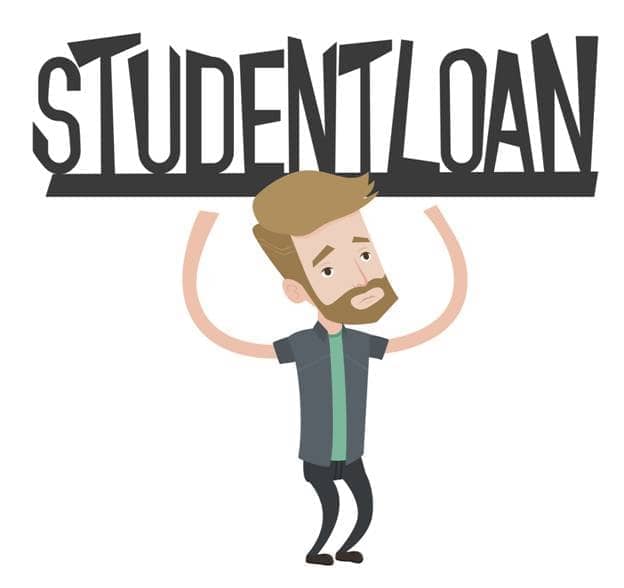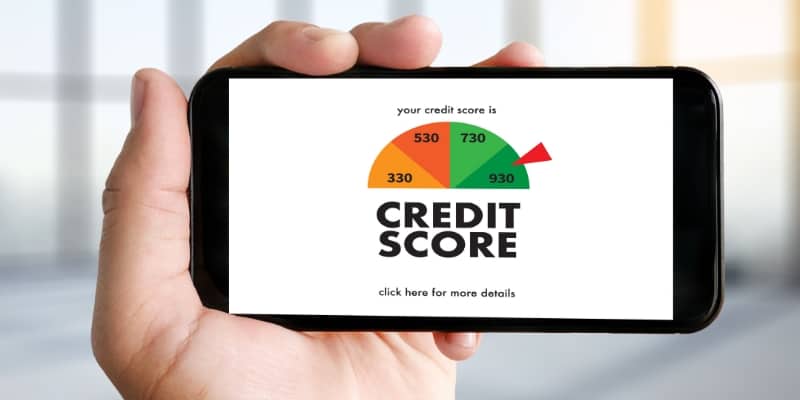Did you know that an estimated 44.7 million people in the U.S. have student loan debt? This information is according to a report offered by the Federal Reserve Bank of New York back in 2018. At that time, the student loan debt was estimated to be as high as $1.47 trillion. That was just in 2018. The average student loan debt today is about $32,731 per student. Getting a college degree can be very important, mainly depending on the career path you choose.
What happens if you don’t land a decent job out of college, and are saddled with student loan debt? This article will take a look at ways that you can avoid destroying your credit before you even start wondering, “how to build my credit score.”
What’s the Difference Between a Deferment and Forbearance?
If you are struggling to pay your student loan bills or struggling to pay student loan bills on top of your other debts, you can decide between a deferment or forbearance to get you the temporary relief that you could use right now. However, there are some differences between these two options that are important to know before you choose one.
These are both solutions that can put your minimum monthly payments on hold if you are dealing with some financial hardship. However, there is a significant difference: one halts interest from accruing during your difficulty while the other doesn’t.
With forbearance, you won’t have to make any monthly payments, but the interest will accrue during this time on the outstanding balance of your student loan. You don’t need to have a specific qualifying event to get a forbearance, which is one reason why this is much easier to obtain. You can also use the forbearance without having to do much other than make a phone call and request it. You can obtain a forbearance for 12 months at a time, though there isn’t a set max for how many you can have. Generally speaking, the loan company will determine if they want to grant you forbearance, though there are situations where they are required to grant you a forbearance.
A deferment is for government-subsidized loans and can be much harder to get. This option means that you can stop making payments without worrying about any interest accruing. However, this is a complicated process. There are different forms that you need to fill out, depending on the type of deferment you are requesting. The length of the deferment can vary from 3 years to as long as your situations qualify you. To qualify, you need to be enrolled in school for at least ½ the time or unemployed. There are other qualifying circumstances that you can look into as well.
Which of these is the best option for you? You should carefully look at the fine print for both of these options to determine the best one for your specific situation. If you qualify for a deferment, this can be the cheaper approach since you don’t have any accrued interest.
Can These Negatively Impact Your Credit?
One of the biggest questions that you have before taking this approach may be, “Does negatively impact my credit?” The biggest misconception that people have is that by taking a forbearance or deferment, they are messing up their credit. The fact is that taking one of these approaches is much better for your credit score than if you were to miss any payments. There may be some volatility in your credit score because of it, but there shouldn’t be any significant negative impact on your credit score.
COVID-19 and Loan Payments
COVID-19 turned everyone’s world upside down, including students or graduates who now all have this student loan debt without any jobs to make their monthly payments. This issue is where the CARES Act addresses the problem. This act was signed on March 27th, 2020, but you can request retroactive coverage for as far back as March 13th. As part of this act, federal student loan payments were suspended and are on hold until September 30th, 2020. During this time, you will have 0% interest rates on loans. You have to remember that these payments are temporarily suspended, not entirely forgotten.
Another vital thing to remember is that the CARES Act only really applies to federal student loans. Private lenders are not mandated by this law to participate in this practice. While these loans are considered to be on forbearance, there is no interest accrued during this time. You should also know that Collection agencies are suspended from sending out collection notices, calls, or bills to those late on their payments.
After this CARES Act period ends, starting in October, you will be required to begin making payments again unless another similar bill passes or you talk to your lender to extend this time. Have a private loan? Though it’s not required, many private lenders are also working with their customers during this challenging time to find ways to offer relief. When working with a private lender, it is recommended that you have any documentation that you can to prove your extenuating circumstances or loss of income when talking to them. Some states have worked with private lenders to help offer relief to those in debt to help them out as well.
While a forbearance or deferment doesn’t necessarily have a significant impact on your credit, you want to be sure that you do everything that you can to protect your credit. Getting a boost to your credit score can be difficult if you have too many hits to your credit. This issue is why you need to take steps to help improve your credit score. If you think to yourself, “I need to fix my credit score,” you could benefit from the services of PREMIER CREDIT PLUS. This team of professionals understands the best ways to help you boost your credit score. Contact us 844-829-2292






